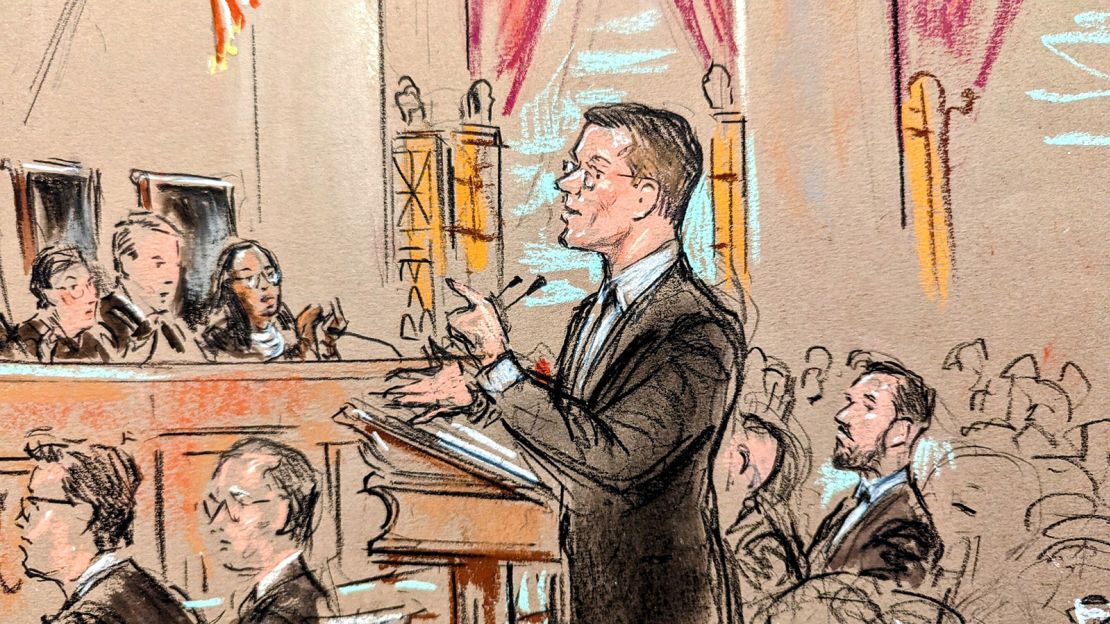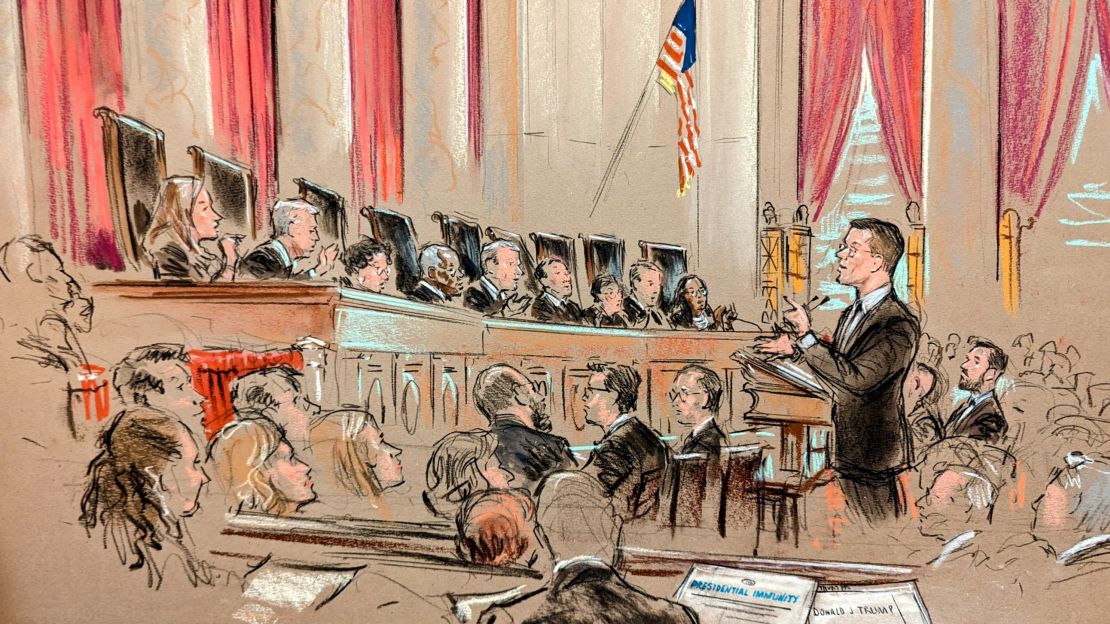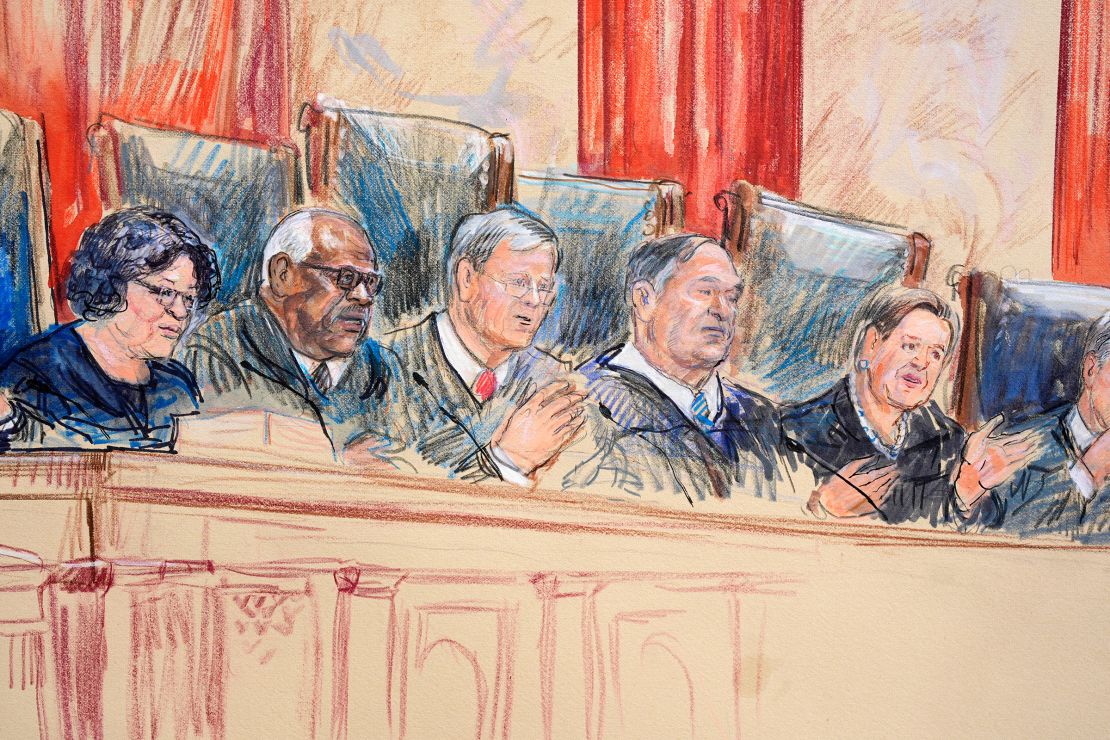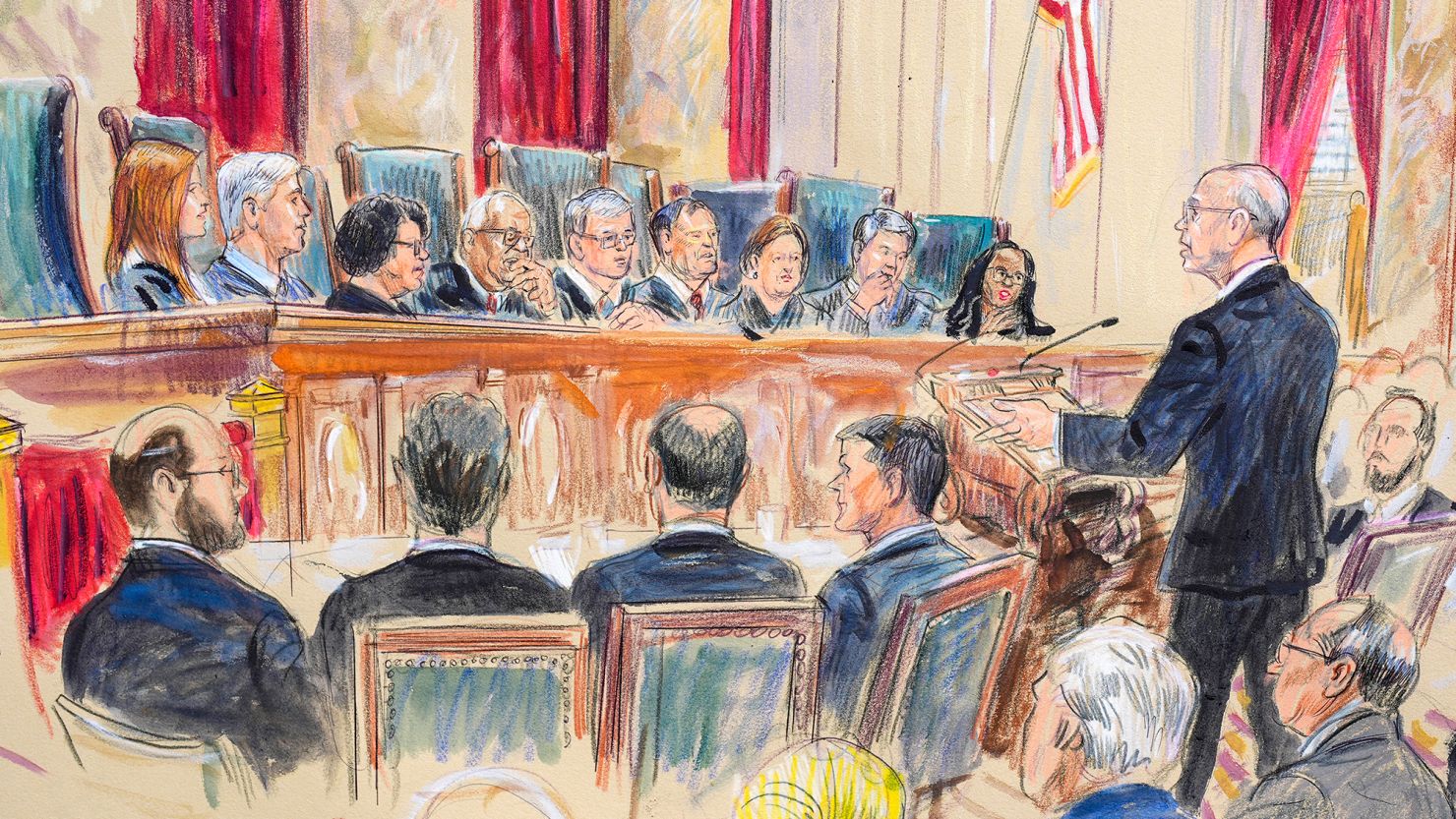Those inside the Supreme Court would have to rely strictly on their visual memory of oral arguments – since photography and video are prohibited while court is in session – were it not for the veteran courtroom sketch artists.
Thursday, in the press pit to the left of the justices’ bench, one of them, Bill Hennessy, was sketching away throughout the historic arguments over presidential immunity, which began around 10:00 a.m. ET and concluded at 12:41 p.m.
With his work balanced over his knees, Hennessy filled in the red velvet curtains hanging behind the bench and captured the justices, not in the way viewers are accustomed to receiving images, instantaneously and live, but through drawing moments in time.
“It’s a different way of recording something,” said Hennessy, who works independently, and often distributes sketches to CNN, NBC, Fox, Reuters and PBS. “It brings a uniqueness to it, that as much as I think many people would prefer to have a video or camera on it, what I do is actually as the questioning is taking place, I go from each justice, as each justice asks the next question, I go and sketch that exchange.”

“I think that’s a unique thing to capture in a single image,” added Hennessy, who has been practicing the art for more than 40 years.
Inside the courtroom, Hennessy used the large pillar to his right, which obstructed some other members of the press’ view of the courtroom, as a place for some of his materials as he sketched. At some points, he lifted a monocle to his eyes for a closer look at the details and placed a ruler down on the page for a straighter edge.
“Especially for younger people today who are so accustomed to getting images and seeing videos and live shots,” Hennessy said. “It’s constant. This is something very different. Now, how long it continues, I don’t know.”
TV cameras have never been allowed to show the Supreme Court at work, and live audio of oral arguments only came about during the Covid-19 pandemic. The court has shown no movement towards allowing cameras, despite constant requests.
Another sketch artist, Dana Verkouteren, a freelancer working for the Associated Press on Thursday, sits down another pillar or two from Hennessy. Verkouteren, who has been a sketch artist since 1984, told CNN she wears opera glasses for her own closer look and draws with colored pencils and ballpoint pens inside.
“It’s very obstructed,” Verkouteren said. “I can see the lawyer at the podium. I can see the justices, but the people that are sitting on the other side, I mean, it’s a sea of people and I’m 5’5.””
“That was the hardest thing. I could hardly see, and I thought that (special counsel) Jack Smith was sitting over there, but I didn’t know for sure until afterwards,” she said.

After arguments, downstairs in the press room, Hennessy and Verkouteren completed their sketches with intense focus. Verkouteren used the end of the table where reporters write on their laptops, standing over her work. Hennessy sat in a chair with the sketches steadied over his knees and materials in a chair next to him. Some white color was smudged at the bottom of his buttoned-up shirt, where the edge of the drawing met his torso.
Given the time constraints of his work, Hennessy said he forfeits the idea of being completely finished.
“It’s always a compromise,” he said. “I could go further and finish more, but I also know there’s deadlines. That’s why, like even today, the first thing I did was finish that first sketch off enough that it was airable.”
Hennessy snaps a picture of his sketches on his phone to send to clients, like CNN.

“I know you all are waiting to get it and get it on air and tell the story soon as possible. You need a visual for it,” Hennessy said.
Verkouteren said the best part about her job is “exposure to life.”
“I walk into anything and everything. And I love the learning and education that I personally get from being exposed to all these interesting people, intelligent, big, big things in the world.”
“The drawing part is secondary,” she said. “I love the energy of it all.”?

